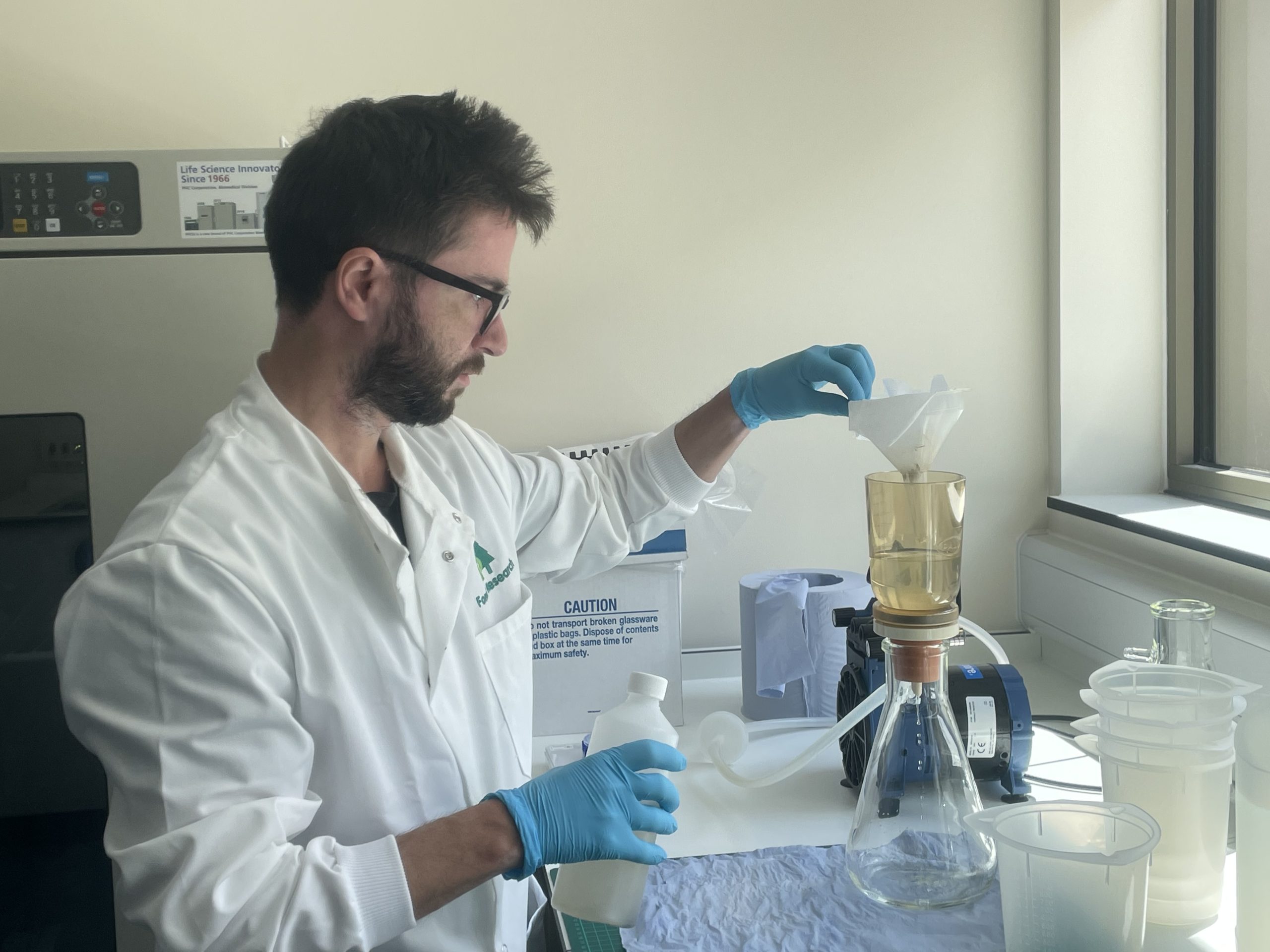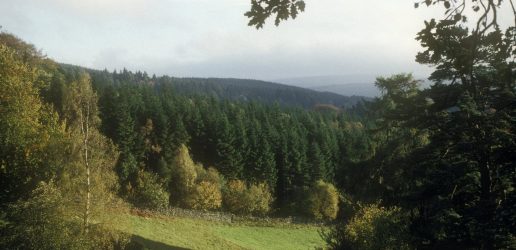
Leone Olivieri joined Forest Research earlier this year. Here he explains the work he is doing and the influences that led him into a scientific career. He’s also got some great words of advice for would-be scientists.
What do you do here at Forest Research?
I’m a forest pathologist in the Tree Health Diagnostic and Advisory Service (THDAS). I joined Forest Research in January 2022 and I’m here to respond to tree health enquiries from Wales. So I am in close contact with Natural Resources Wales and Welsh Government; samples are sent to THDAS and I am responsible for their analysis. I also respond to other enquiries reaching THDAS from the public via Tree Alert.
I assist on some research projects too – the Welsh Plant Health Surveillance Network, analysing in our laboratory at Alice Holt the spore samples collected from a network of traps set up in Wales. I’m also doing a lot of work on Phytophthora pluvialis. Following its discovery in Cornwall in 2021 we’ve had to put a lot of effort into testing a huge number of samples we’ve received – to see if the pathogen is present or not.
Why is this work important to you?
Tree health is something we need to keep an eye on not just in the wake of climate change, but because forests are a fundamental part of our ecosystem. We are constantly generating imbalance through our activities so we need to keep an eye on the effects, to ensure our trees are healthy, so wildlife can thrive, so that the resources are there when we need them.
What’s the best bit of what you do?
I work with fungal diseases, they are very interesting organisms and I’ve always wanted to work with trees, because I like trees. So joining Forest Research was a natural choice. It means I can get to work with trees doing something I love. The workload can be busy, there are lots of samples to process and urgent enquiries to handle. I need to be organised and work quickly.
How did you get into science?
It was all down to good teachers. I had very good science teachers who taught in a ‘hands on’ way. I remember seeing for the first time, cells under a microscope when we peeled off an onion skin, and that was wonderful, extremely fascinating. And we talked a lot and did a lot of reasoning about things like evolution.
At high school my science teacher gave us a book called “The Panda’s Thumb” by Stephen Jay Gould, it was fundamental for me. It contains an outstanding selection of essays around evolution, explaining it in an intriguing and playful way. So, for me, it was down to good teachers, doing lots of discussing and keeping it hands on and fun.
I came to the UK in 2016 when I found an interesting PhD project based at Royal Holloway, University of London, and NIAB EMR, East Malling, Kent – dealing with a tree pathogen (Neonectria ditissima) which causes European apple canker. After I got my PhD I wanted to stay as I had developed a network in the field of plant pathology, and I like the UK and I have many friends here.
What do you hope to do in the future?
I hope I can keep working in plant pathology and with trees. I would like to work at the interface of biology and forest resources management, to research the applied sides of pathology. And I am also interested in microbial ecology, looking at microbial organisms which live inside plants, how they interact with each other as well as the plant. In the wake of climate change this is an interesting topic as organisms can grow in places they didn’t grow before so it’s a complex dynamic ecosystem.
Do you have any advice for young people who would like to go into a scientific career?
Science is really complex, it’s easy to get lost so I think the most important advice I can give is to make sure you take time to look around and explore, to try different things, and discover what you connect to, what it is that drives your curiosity and where that leads you.
Also make sure you study a lot, to provide a solid backbone of understanding. You need to make time for reading, for understanding and always ask yourself questions, never be afraid of doubting things. Questioning is the right attitude for a scientist.
What do you do in your spare time?
I am an outdoor person. I go out in every weather. I love a walk and I love animals. Also, I cook and I learn languages. I’m studying Japanese now. I took three months to learn to write down the letters and now I have to study the symbols. I find it very satisfying.
New research has been published which explores how to enable and encourage access to woodlands for diverse members of the public.
Forest Research has been involved in a project focusing on efforts to improve inclusivity in biosecurity practices by exploring how to integrate different knowledge systems into mainstream decision-making.

Forest Research has released the latest Accredited Official Statistics on woodland and forestry in the UK.
New research has been published which explores how to enable and encourage access to woodlands for diverse members of the public.
Forest Research has been involved in a project focusing on efforts to improve inclusivity in biosecurity practices by exploring how to integrate different knowledge systems into mainstream decision-making.

Forest Research has released the latest Accredited Official Statistics on woodland and forestry in the UK.